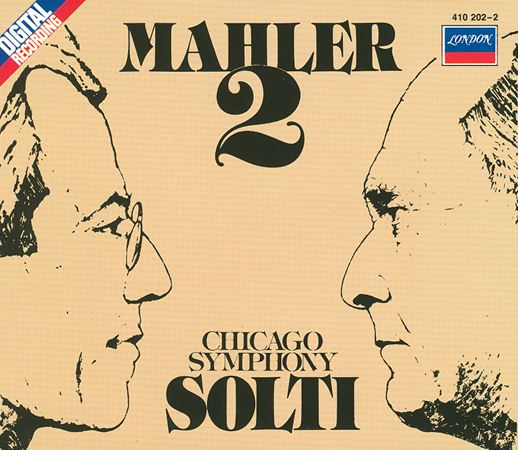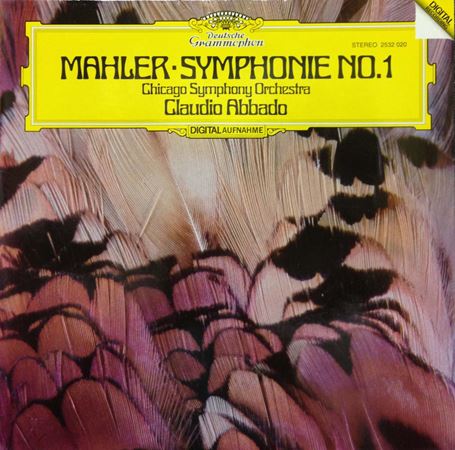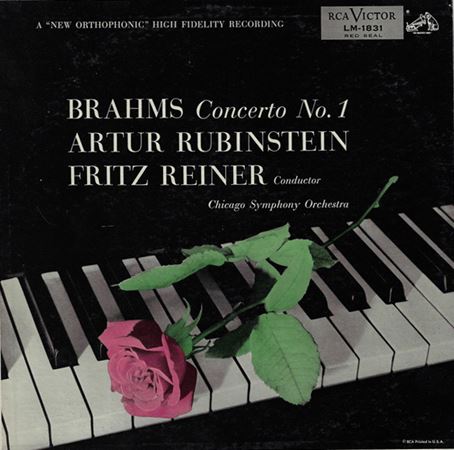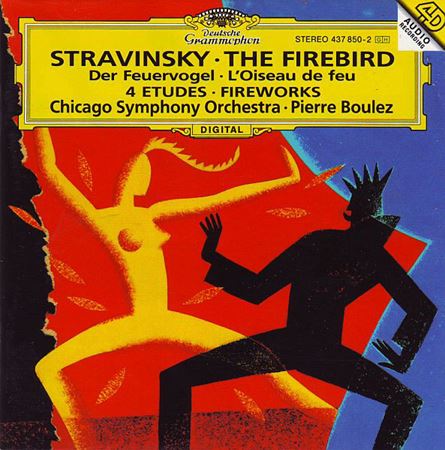Kuang-Hao Huang has frequently collaborated with members of the Chicago Symphony Orchestra, in concerts for MusicNOW, CSO Sessions and the Chamber Music Series.
Elliot Mandel Photography
The Chicago Symphony Orchestra’s commercial recording legacy began on May 1, 1916, when second music director Frederick Stock led the Wedding March from Mendelssohn’s A Midsummer Night’s Dream for the Columbia Graphophone Company. The Orchestra has since amassed an extraordinary, award-winning discography on a number of labels — including Angel, CBS, Deutsche Grammophon, Erato, London/Decca, RCA, Sony, Teldec, Victor and others — continuing with releases on the in-house label CSO Resound under tenth music director Riccardo Muti. For My Favorite CSO, we asked members of the Chicago Symphony family for their favorite recordings (and a few honorable mentions) from the Orchestra’s discography.
Collaborative pianist and Chicagoan Kuang-Hao Huang has performed in New York City’s Weill Recital Hall at Carnegie Hall, Lincoln Center and Merkin Hall; in Washington, D.C.’s Kennedy Center; and in every major venue in the Chicago area, including the Harris Theatre and Symphony Center. He is regularly heard live on WFMT and has recorded for Aucourant, Cedille, Innova and Naxos. Huang’s most recent releases include Notorious RBG in Song with soprano Patrice Michaels and Songs from Chicago with baritone Thomas Hampson. A strong advocate of new music, he is a core member of Fulcrum Point New Music Project and Picosa. Huang is artistic director of the International Music Foundation’s Make Music Chicago, and he also founded IMF’s Pianos in the Parks program, which partners with the Chicago Park District to give all Chicagoans access to outdoor pianos as well as free lessons. He serves on the faculties of the Chicago College of Performing Arts at Roosevelt University and Concordia University–Chicago.
First, I’d like to thank Frank Villella for giving me an excuse to revisit these recordings that were so much a part of the formative years of my musical life. Some of these recordings I have not listened to in decades, but listening to them now, it’s like I just heard them yesterday. All the nuances, all of the goosebump moments — all happen as I expect them, as they are so ingrained in my being.
MAHLER Symphony No. 2 in C Minor (Resurrection)
Recorded in Medinah Temple in 1980 for London
Sir Georg Solti conductor
Isobel Buchanan soprano
Mira Zakai mezzo-soprano
Chicago Symphony Chorus
Margaret Hillis director
1981 Grammy awards for Best Classical Album and Best Classical Orchestral Recording
“This recording has to be my first choice because it was my gateway to classical orchestral music. I don’t even recall how I came to choose this as one of my 10-for-a-penny CDs through the BMG club. I grew up in a small town in Wisconsin, and my musical world consisted mostly of the music I played as a trombonist in school (marching band, concert band and jazz band) and classic rock I listened to with my friends. My knowledge of classical music was limited to the piano music I learned, a few treasured recordings of Alfred Brendel and Artur Rubinstein and what I heard in Bugs Bunny cartoons.
“It still boggles my mind how a behemoth of a symphony was able to capture and enrapture a teenage boy with limited classical musical exposure, but I suppose Mahler throws everything but the kitchen sink into this highly dramatic work — full orchestra, chorus, vocal soloists, offstage brass and organ. The brass playing is out of this world, which was what first drew me in. But after many repeated listenings, it was the emotional breadth and near religious experience of the final two movements that kept me coming back and eventually led me down the path to being a classical musician.”
MAHLER Symphony No. 1 in D Major
Recorded in Orchestra Hall in 1981 for Deutsche Grammophon
Claudio Abbado conductor
“Naturally, with Mahler’s Second Symphony being such a revelation, I decided to explore more Mahler, and this recording was one of the few I could get my hands on. It did not disappoint! Again, thrilling brass playing. While I was in high school, I attended a local summer piano camp that always took students on a field trip to hear a piano concerto at the Ravinia Festival. I don’t even remember what concerto we heard or who the soloist was, but Mahler’s First Symphony was also on the program, and to hear the CSO play this live was unforgettable!"
BRAHMS Piano Concerto No. 1 in D Minor, Op. 15
Recorded in Orchestra Hall in 1954 for RCA
Fritz Reiner conductor
Artur Rubinstein piano
“Artur Rubinstein is the reason I love this recording. His playing of one of my favorite piano concertos is so majestic, so noble, so honest. There is no showmanship, no artifice. He is simply a conduit for the magic that is Brahms’s music. The slow movement has given me comfort through many difficult times."
STRAVINSKY The Firebird
Recorded in Orchestra Hall in 1992 for Deutsche Grammophon
Pierre Boulez conductor
“The Chicago Symphony Orchestra with Pierre Boulez and Igor Stravinsky is a combination that can’t be beat. The precision of the playing and the clarity of textures allow the listener to hear every last detail in Stravinsky’s colorful writing. From the raw excitement of the Infernal Dance to the beauty of the Lullaby to the glorious finale, this is a recording I go back to over and over.”
BARTÓK Concerto for Orchestra
Recorded in Orchestra Hall in 1992 for Deutsche Grammophon
Pierre Boulez conductor
“So CSO, Boulez and Bartók is a pretty awesome combination as well. Again, the virtuosity of the Orchestra and Boulez’s finely tuned balances create a stunning show of power and subtlety. For anyone skeptical of Bartók’s music, this recording is sure to change your mind!”
A few honorable mentions:
- BRAHMS Piano Concerto No. 2 in B-flat Major, Op. 83 with Fritz Reiner and Emil Gilels for RCA (1958)
- MAHLER Symphony No. 9 in D Major with Sir Georg Solti for London (1982)
- STRAUSS Concerto for Oboe and Small Orchestra in D Major with Daniel Barenboim and Alex Klein for Teldec (1998)
MFC-037








